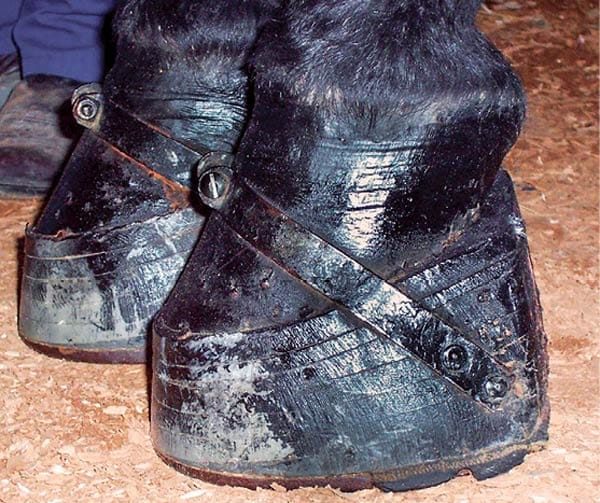A trio of Congressmen have introduced bipartisan legislation that aims to create a federal law enforcement division to improve the investigation, application and prosecution of felony animal cruelty crimes.
If enacted into law, House Bill 1016 — or the Animal Cruelty Enforcement (ACE) Act — will establish the Animal Cruelty Crimes Division at the Department of Justice. The bill’s purpose is to streamline the investigation, prosecution and enforcement of animal cruelty laws. Currently, cases have seen lengthy delays, while others have not been prosecuted because of a lack of personnel, says Rep. Joe Neguse, who sponsored the bill. Citing studies that establish a link between animal cruelty and violence toward people, the Colorado Democrat believes that prosecuting animal cruelty crimes will not only prevent further harm toward animals, but also people.
“Proper enforcement of animal cruelty laws will protect animal welfare and help keep our communities safe from the violence so often linked to these crimes,” says Neguse, whose bill was co-sponsored by Rep. Dave Joyce, an Ohio Republican, and Rep. Steve Cohen, a Tennessee Democrat. “The Animal Cruelty Enforcement Act, which I am proud to have introduced with my bipartisan co-leads, seeks to bolster the prosecution of these crimes by providing the necessary resources and staffing for efficient enforcement.”
The bill’s intent to streamline the investigation and prosecution of animal cruelty cases is a point of emphasis for Joyce.
“As a former prosecutor, I know we can do more to crack down on criminals who abuse animals, and as a member of Congress, I feel obligated to provide the tools necessary to do just that,” he says. “The ACE Act will improve the federal government’s ability to investigate and prosecute animal cruelty crimes by creating a dedicated Animal Cruelty Crimes section within the Department of Justice, so that perpetrators of these heinous crimes will be held accountable in a timely, efficient manner.”
When writing he bill, the authors collaborated with animal rights organizations for specialized knowledge on the issues involved in animal cruelty. The organizations are Animal Wellness Action, the Animal Wellness Foundation, the Horses for Life Foundation, American Horse Protection Society, and the Center for a Humane Economy. Wayne Pacelle, president of Animal Wellness Action and the Centers for a Human Economy, leveled his sights on several issues including soring.
“Our nation has an epidemic of rampant dogfighting and cockfighting, bestiality, the sale of animal crush videos, horse soring, and other forms of extreme exploitation,” says Pacelle, the former president and chief executive officer of the Humane Society of the United States. “There are major U.S.-based cockfighters and dogfighters shipping animals for fighting to destinations across the world, and the scale of these enterprises is beyond the capacity of our local enforcement authorities to interdict.”
Soring is the intentional application of substances or devices to horses’ limbs to inflict pain in order to achieve an exaggerated high-stepping gait in show rings. The practice has been a target of animal rights organizations, the equine industry and the federal government for more than 50 years. Several pieces of legislation have been introduced to combat the practice; however, the Horse Protection Act is the only bill enacted into law.
“Establishing a dedicated Animal Cruelty Crimes Division within the Department of Justice is an essential step towards fully investigating and prosecuting individuals that prey on animals,” says Allondra Stevens, founder of Horses For Life Foundation. “We fully support the Animal Cruelty Enforcement Act and hope to see its swift passage into law this Congressional session.”
Both the House of Representatives and the Senate must approve the legislation before sending it to the White House for President Joe Biden’s signature before it is enacted into law. The text of the bill is not available at this time.
The Preventing Animal Cruelty and Torture (PACT) Act, the first federal anti-cruelty bill in American history, was signed into law by President Donald Trump in December 2019. The law strengthens a 2010 law that bans the creation and/or distribution of video that depicts “non-human mammals, birds, reptiles, or amphibians” being “intentionally crushed, burned, drowned, suffocated, impaled, or otherwise subjected to serious bodily injury” in an “obscene” manner and is carried out in or affecting interstate or foreign commerce. The 2010 law did not make the acts themselves a federal crime. If an accused offender is convicted under the PACT Act, the sentence could result in as much as 7 years of imprisonment and a fine.








